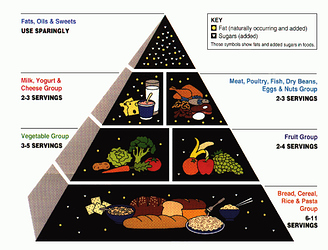The tastiness stays but the texture of baked goods is often wonderful. I really enjoy the texture of my food, it’s highly important for me. Of course, I don’t need bread for that (but it’s so great at it). My sponge cake is fluffy too. Different from my breads but fluffy. A tad moist as it’s a minimal carnivore kind… I should bake it again, I keep eating them up before that could happen…
Flour and taste, it’s a bit complicated. A bread without filling or butter still can be super tasty but indeed, I don’t like minimalist breads. The one I bake for my SO has sesame seeds and many other things and they make a difference. Wholemeal flour has more taste too. Bread is strange as that is about the only thing where a lot of flour doesn’t make the taste bad for me. I tend to feel everything with flour (unless it’s super flavorful so the taste is masked) raw flour tasting and I don’t like that as raw flour tastes bad. Cakes are so trivial on keto as they don’t need flour but breads do. (At least according to my taste.)
If I just want a sandwich (not like I ever liked sandwiches but there are exceptions), my sponge cake buns are perfect. Egg tastes WAY superior to flour  But when we mix things together, it gets more difficult, taste and crispiness comes into play…
But when we mix things together, it gets more difficult, taste and crispiness comes into play…
I like cheese but I rarely like cheesy things unless the cheese is on top (I made not-pizza things but the crust never had much or any cheese, for example). So that isn’t a good option for me, sadly. It would be a great carnivore flour… Sometimes I still use it, my SO loves cheesy fluffs for protein. It’s not very tasty as his lacks yolks… Baking without yolks isn’t my style, yolk is one of the tastiest ingredient I can use and it suits baked goods very well, mandatory in many cases too…
@Chetogenico: I would eat my risotto the way I enjoy it most but I am a hedonist… Who doesn’t eat risotto but that’s not the point, I do like some carby things. I almost never eat them but if the fancy hits, I eat according to my desires. What happens when I eat a certain amount may and should play a role in my desires.
If you eat the thing very occasionally, enjoy yourself. If you do it very regularly… Then ketosis can’t be that important for you…? Though I understand the desire to get as much as possible without sacrificing anything but at some point you just can’t eat your risotto and keep your keto too. But you should come back to ketosis soon…
A healthy person don’t just gain fat without overeating. Carbs with fat get used up eventually if you don’t eat too much. Even if you can afford less food that way for some reason (I don’t have that), it can’t be a serious difference. Even if it could be, it’s up to you to decide if it’s worth it for you. I don’t have this kind of dilemma as I inevitably overeat if I touch some nice HCHF food, potentially very much. I just don’t gain (at least if I don’t do it all the time). Overeating is still not healthy but it depends how much and how often… And I experienced that it’s fine for me to eat more than what I need occasionally (I may need the nutrients though), I will automatically eat a bit less later (as long as I don’t start or keep eating when satiated). Some people have almost a complete tabula rasa every morning…
It definitely feels zillion times better to me though. I would get sick on HCLF. The more fat I add (especially in the end), the better I feel. Even if I already ate too much but the fat isn’t very high (rare but there are some not very fatty carby favs of mine…), I must eat much fat to feel okay. I shouldn’t do such things and I don’t do it anymore but if it would happen, fat is non-negotiable and not avoidable if I have access to it. I crave fat like crazy there, my body wants and need it badly, I can’t and don’t want to resist.
So fat does mitigate carb problems, very spectacularly, in my case. IDK what my insulin and BS do, though. I just know I feel much, much better. (But the real good feeling comes the next day when I eat almost no carb.)
I heard many times what the others talked about, that fat and protein helps to avoid a really big spike, slows down carb digestion… It plays no role in my decisions as I am physically and mentally unable to eat low-fat (at least when I eat much carbs, it’s possible if I eat very low-carb but just occasionally) but I do instinctively eat very much fat on carbier days. And intentially too, somewhat. I don’t need to try as I overeat fat without trying - but with much carbs, I need that as it’s still better than the alternative.
I seriously doubt it. SAD is some special bad diet, I have some vague idea about it. There are many kinds of HCHF diets and their healthiness wildly vary. Even for the same person. All is wrong for me but not for everyone and the bad ones are still way worse than the better ones. It matters what we eat even if there is much carbs involved.


 But when we mix things together, it gets more difficult, taste and crispiness comes into play…
But when we mix things together, it gets more difficult, taste and crispiness comes into play…